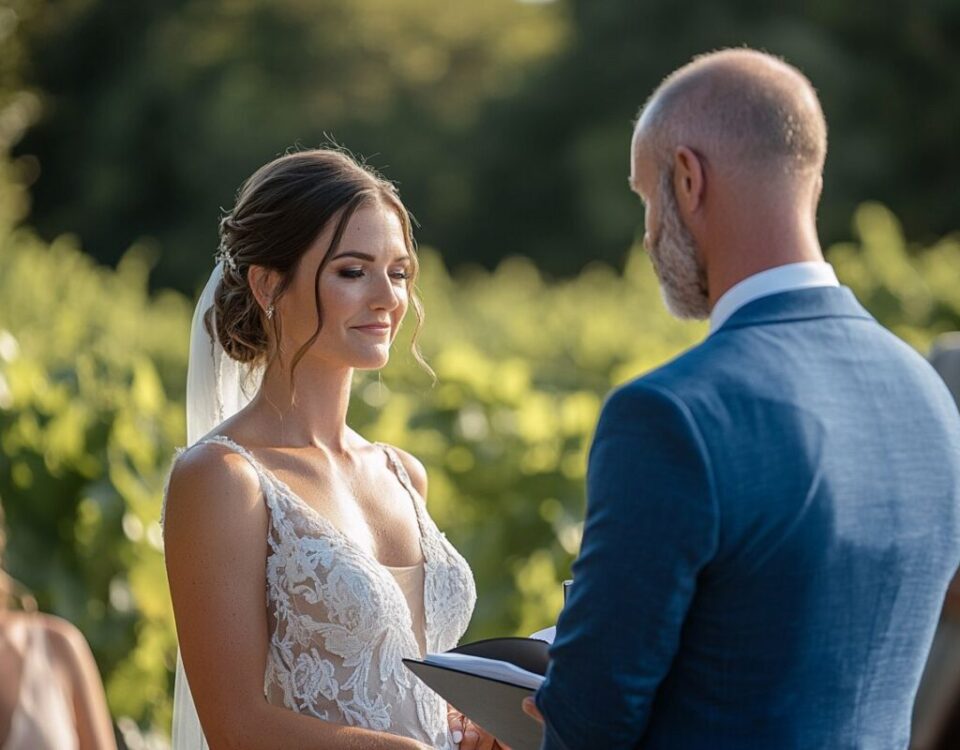
How to Create a Memorable Wedding Table Decoration
24 July 2024
What to Pack for a Wedding in Italy?
24 July 2024A multicultural wedding is a celebration of love and unity between people from different cultures. Organizing a multicultural wedding requires special attention to respect and celebrate the various wedding traditions of the couple. Discover through the expertise of our wedding planners how to orchestrate a multicultural wedding without a hitch.
Planning Your Multicultural Wedding
Budget
The budget for a wedding can vary significantly depending on the venue, the number of guests, and the included services. It is essential to define your budget from the beginning to prioritize expenses and stay within the financial limits set. A wedding planner’s perspective can help you manage spending categories and fairly allocate your wedding budget.
Among the most expensive aspects to consider are the rental of your wedding venue, which is usually the first expense of a wedding. The caterer is also among the most significant budget items to consider, including the wedding cake or centerpiece. Finally, the bride and groom’s attire, including the wedding dress, the groom’s suit, and the wedding rings, are costs to budget for from the start of your planning.
Decoration and stationery are also items to consider, starting with flowers and decorating your venue. Menus, place cards, invitations, and the guest book are elements to think about as well. Finally, all sound and lighting elements, as well as the video, will be important to include in your budget. Thus, the photographer, videographer, and DJ or live band should be chosen according to your desires and expectations for the wedding’s ambiance.
Set aside a margin of $5000 to $10,000 for miscellaneous expenses and additional services you may want to add later to avoid unpleasant surprises in your final budget.
Number of Guests
The number of guests should be considered as early as your budget because one goes hand in hand with the other. When you have carefully established your guest list, inform them of a deadline to confirm their attendance at the ceremony. This way, you can quickly determine the exact number of guests you will have, making the rest of the wedding planning easier.
To prepare your guest list and avoid missing anyone, our wedding planning experts advise making individual lists, then combining them to see if any additional people should be added. Then think together about your friends and family guests to avoid forgetting anyone. Finally, remember to include children’s names to reserve a table for them.
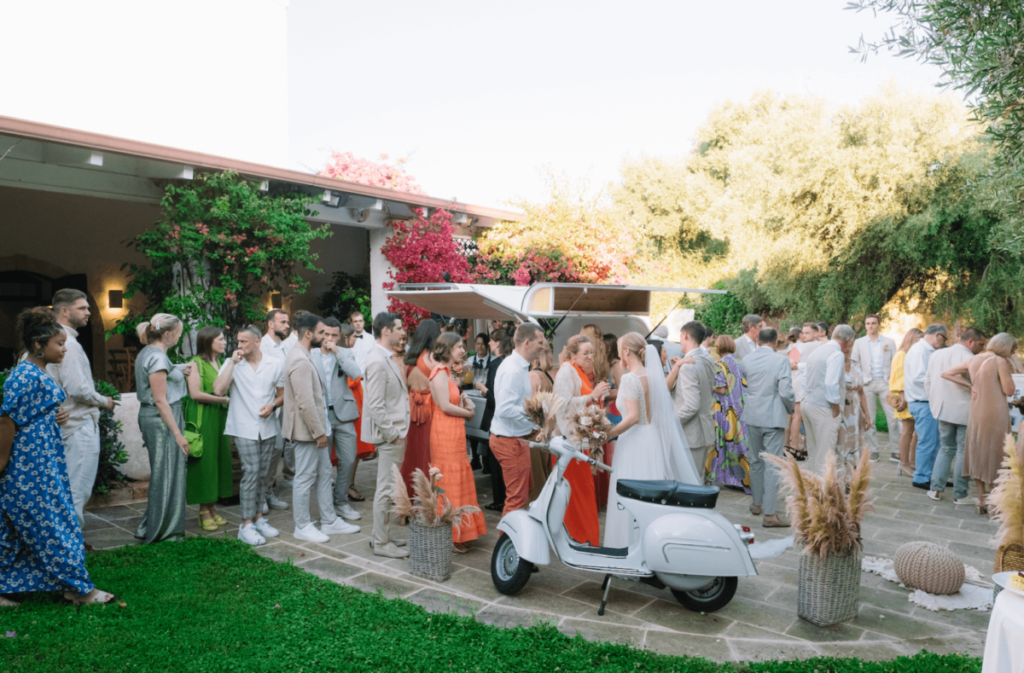
Multicultural Wedding Theme
The choice of your wedding theme should reflect your tastes, personalities, and the traditions surrounding your lives. For a multicultural wedding, we recommend a theme that blends traditions, where customs and rituals from each culture are harmoniously integrated into the celebrations.
You could also choose a theme related to world travel and its traditions, highlighting cultural elements from various countries with decor, music, and cuisine representing the couple’s origins. Today, there are many ways to find the ideal theme for this special day. Pinterest, for example, is an infinite source of inspiration and can help you make choices about colors, materials, flowers, lighting, or textures.
Announce the theme to your guests in advance so they can plan their outfits or accessories accordingly for the wedding ceremony day.
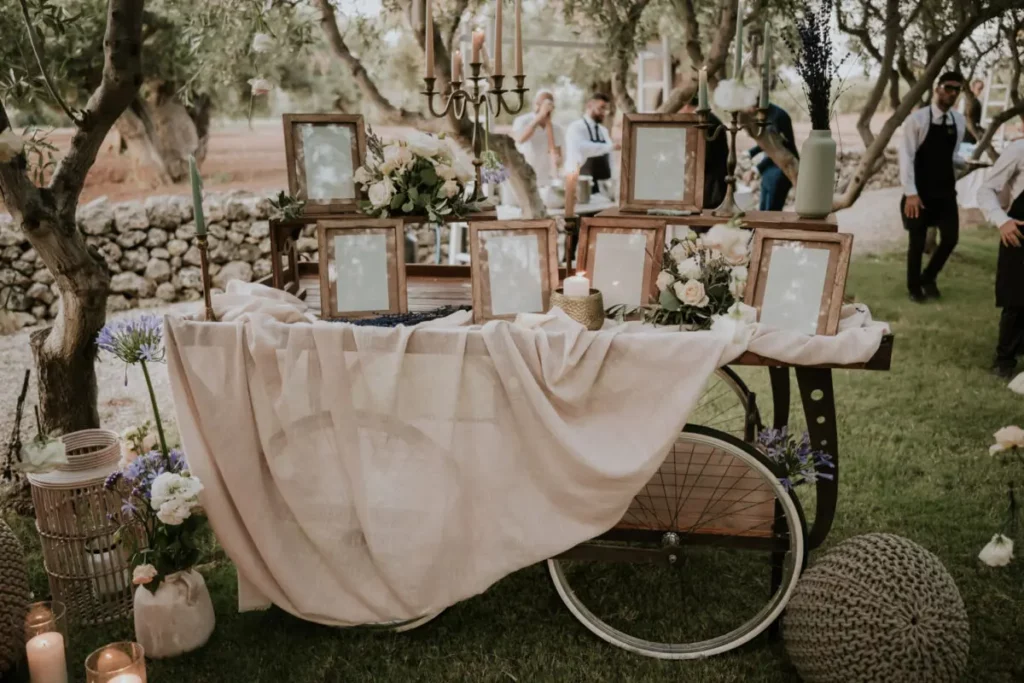
Including Family Cultural Differences
A Menu with Different Flavours
During the welcome cocktail or dinner, you have the opportunity to mix flavours from around the world to celebrate your union.
For the cocktail, offer revisited classics to create unique creations. From Brazilian caipirinhas to Italian spritzes to Cuban mojitos, each sip takes guests on a sensory journey around the countries honoured by your ceremony.
The wedding meal is an opportunity to mix customs, regions of the world, and traditions carried by your union; from appetizers to desserts, each dish is a tribute to the couple’s culinary traditions.
From Italian burrata with focaccia to Indian samosas, Moroccan tagines, and Japanese sushi, each bite invites you to discover new culinary horizons.
Thus, kosher or halal menus can be planned, even mixed. Indeed, if you are planning a wedding with both Jewish and Muslim identities, why not offer both halal and kosher options to satisfy all your guests.
In the case of a Belgian wedding, you could opt for a cocktail around beer and Belgian culinary specialities (small savoury waffles, mini carbonnades).
Mixing flavours will make your dinner an unforgettable memory for all your guests and create a unique atmosphere.
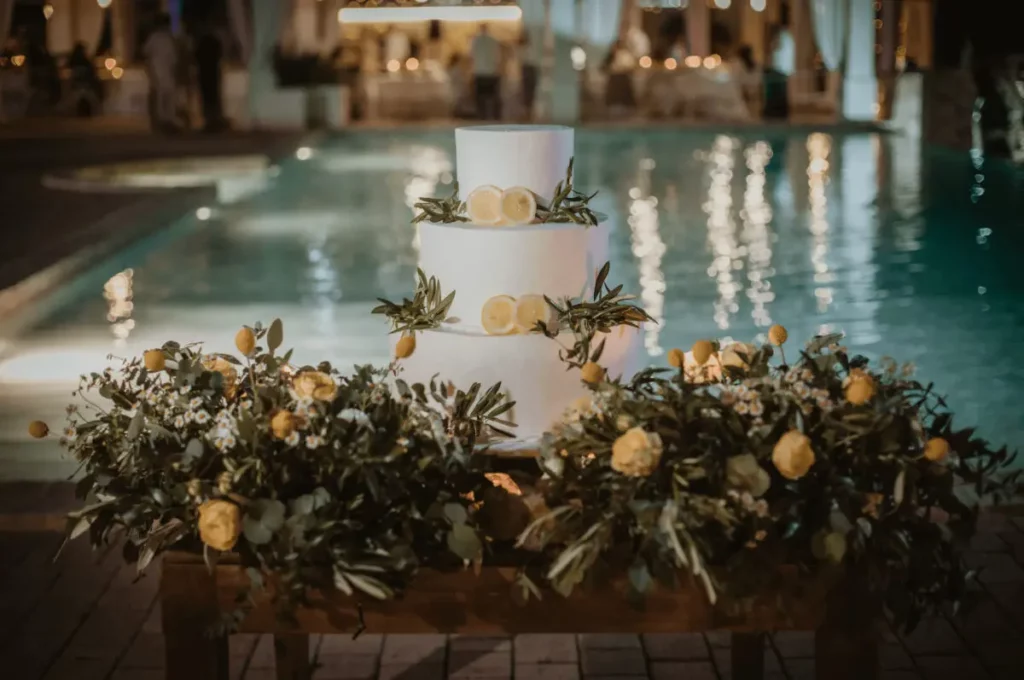
Traditions and Customs of wedding multicultural
From traditional wedding ceremonies to family customs passed down through generations, each element of the wedding day should be carefully considered to reflect the couple’s cultural heritage. From sumptuous traditional attire to wedding decorations, food, and music, every detail should be chosen with care to celebrate the different cultures represented.
Multicultural or multilingual weddings also offer the opportunity to merge customs, creating unique and personal celebrations. For example, a wedding combining elements of Christian and Jewish ceremonies might include both the traditional breaking of the glass and the exchange of rings, symbolizing the unity of the two families.
Multicultural Wedding and Ceremony
Secular or Religious Ceremony
The choice of a secular or religious ceremony may arise for couples of different religious backgrounds. In the case of an interfaith marriage, both traditions can be respected during the wedding ceremony. Thus, you could start the day with a secular ceremony to honour each family’s customs and beliefs, followed by a religious ceremony in a place of worship corresponding to your respective faiths.
The possibilities are almost endless. A couple can choose to incorporate elements of religious ceremony into their mixed wedding, offering an inclusive and unique spiritual experience for families and guests.
A Ceremony Including the Cultural Rites of the Couple
Including rites unique to your respective cultures can be a way to envision your wedding ceremony by integrating the rites and traditions of each spouse.
For example, a multicultural wedding might include rituals such as the Hindu “Saptapadi,” where the couple takes seven steps around the sacred fire, symbolizing their commitment to walk together through the seven stages of life. Similarly, traditional rituals like sharing bread and salt in Slavic weddings or the parents’ blessing in Buddhist weddings can be integrated to honor family customs and heritage.
Whatever the form of the ceremony, the goal of our wedding planners remains the same : to celebrate the love and commitment of the couple while respecting their cultural and religious backgrounds.
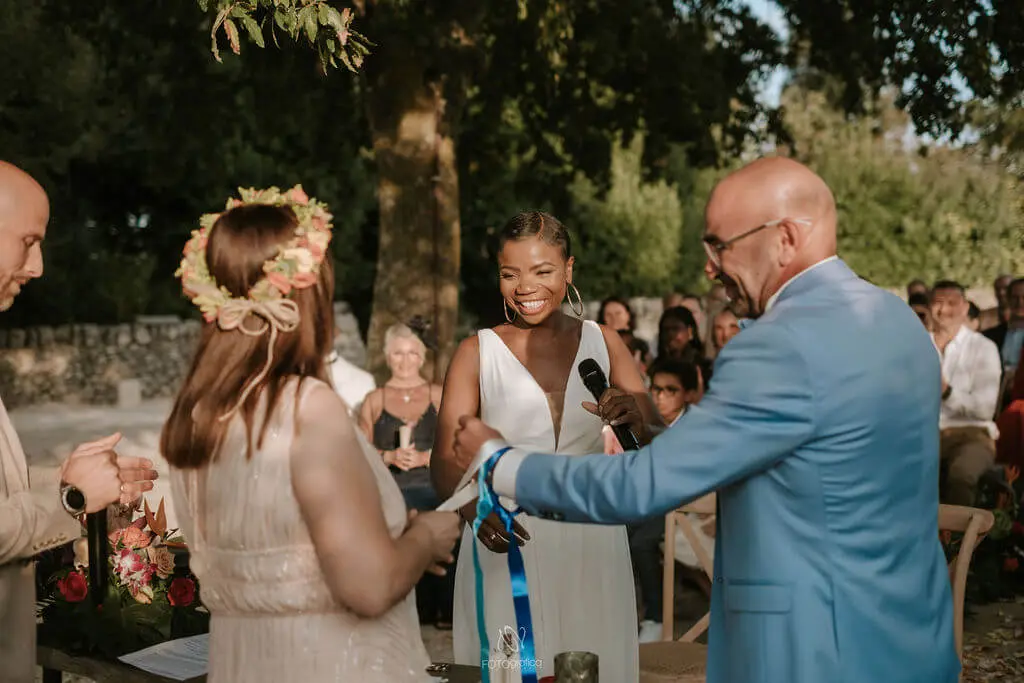
Multicultural Wedding and Family
Communication Between Spouses
In the case of a multilingual couple, to make understanding easier for your guests, consider hiring an interpreter or printing stationery (ceremony booklet, menus) in several languages.
Remember that the most important thing is that your wedding reflects you and respects your desires and respective traditions. Discussing your expectations and vision for the ceremony together is key to organizing a wedding that resembles you and brings all your loved ones together for this special moment.
Dialogue Between Families
Invite your families to talk together or meet beforehand if the geographic distance allows. If meeting is difficult, consider a video call to exchange ideas. A wedding is also the union of two families through two people. It’s important for communication to be possible between both families to organize your wedding ceremony serenely. The cultural differences of your families will then become a source of richness.
For example, you could involve your families in choosing the menu or the rites to organize during the vow exchange ceremony so they also feel included in the creation of your union.
Successful Multicultural Wedding: Example of Nina and Mohamed
We had the pleasure of organizing many multicultural weddings. Nina and Mohamed are an example of a successful mixed marriage. Indeed, we assisted them in preparing and celebrating their wedding in 2018. She is Catholic, and he is Muslim : they chose Puglia for their unique wedding ceremony. Discover a glimpse of their celebration by viewing their wedding portfolio.
Their wedding was celebrated in a masseria in Puglia, with a church ceremony conducted by a priest, followed by a ceremony and exchange of vows officiated by an imam.
Thus, a multicultural wedding is a celebration of love beyond cultural and religious boundaries. By combining elements of African, Muslim, French, Italian, Polish, Creole, Indian weddings, and many more, couples can create a ceremony that honours their heritage while celebrating new traditions.



